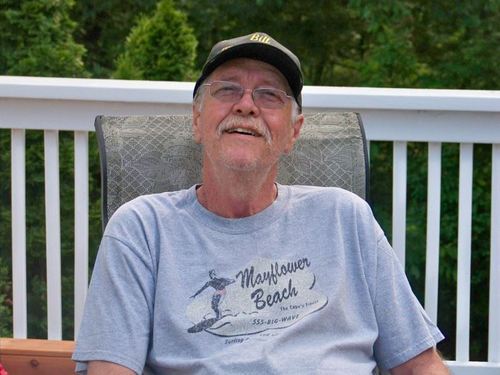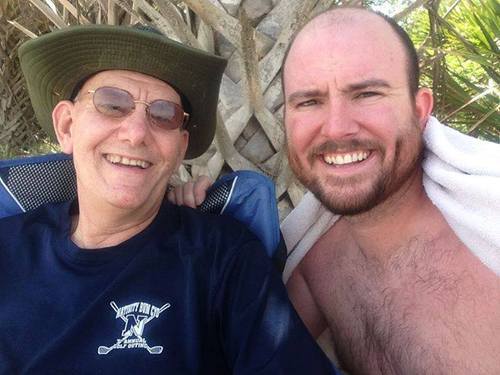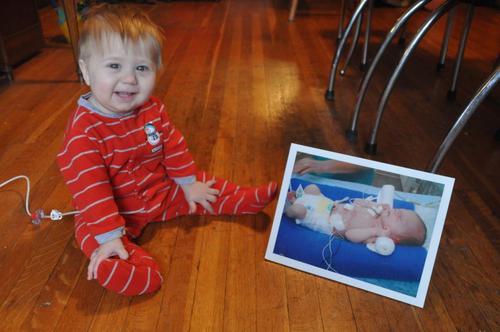Jerry Davich: Dialysis patients drained by proposed
budget cut
JERRY
DAVICH August 10, 2013 11:02PM
25019679
James
Myers sat quietly in a large chair as his blood was artificially cleansed of
waste by a whirring dialysis machine that beeped every few seconds.
With
a blanket draped over his legs and a catheter connected to his chest, Myers sat
patiently inside the Fresenius Medical Center in Crown Point. He visits there
three times a week for at least four hours each time to undergo hemodialysis,
which replaces the function of his failing kidneys.
The
59-year-old Crown Point man suffers from polycystic kidney disease, which took
the lives of several family members, including his father. Though Myers was
diagnosed in his younger days, his positive lifestyle choices the past three
decades only delayed the inevitable.
His
genetic fate caught up to him last summer. He’s been on dialysis ever since.
“I
have no choice. You either submit to dialysis or you die,” said Myers, who also
is on three kidney transplant lists.
Myers
is among more than 400,000 Americans with irreversible kidney failure, and
roughly 85 percent of them rely on Medicare’s end stage renal disease benefit
for life-sustaining dialysis care. But a recent proposal from the Centers for
Medicare and Medicaid Services would cut Medicare’s benefit reimbursement by
9.4 percent, causing an uproar by dialysis patients and their advocates.
“I am concerned that this cut will force some
facilities to close and that other facilities will eliminate patient-focused
programs, services, and benefits that improve patients’ health and quality of
life,” Myers wrote to region lawmakers last month.
“I
am writing to urge you to intervene with CMS to ensure that this proposed rule
— when it does become law — is reasonable and protects my access to quality
care,” he wrote to me.
Since
becoming a dialysis patient, Myers has become a state advocate for the National
Kidney Foundation, and an ambassador for Dialysis Patient Citizens and the
Polycystic Kidney Disease Foundation. In other words, he’s a vocal activist on
behalf of thousands of dialysis patients throughout Northwest Indiana.
In
March, he traveled to Washington, D.C., and last week he met with U.S. Rep.
Pete Visclosky to voice his concerns over the proposed budget cut, totaling a
reported $970 million in 2014.
“These
cuts threaten to close smaller rural clinics and this would undoubtedly affect
this clinic in Crown Point,” he said while his blood filtered through a
dialyzer. “If local facilities close or consolidate, my fellow patients and I
will undoubtedly feel the effect. Many of them arrive here with canes, in a
wheelchair, or in an ambulance.”
I
contacted the Centers for Medicare and Medicaid Services, or CMS, and a
spokeswoman shared with me a fact sheet explaining the complex methodology used
to determine the budget cut proposal.
“The
fact sheet explains the factors that adjusted the payments for end-stage renal
disease, including provisions in the American Taxpayer Relief Act that directs
CMS to adjust the payment bundle to reflect a decrease in the use of certain
drugs and biological,” CMS spokeswoman Tami Holzman told me.
Based
on 2007 claims, CMS’s detailed analysis showed an average payment per treatment
of $83.76 for drugs and biologicals compared to 2012 claims reflecting a lesser
payment, $51.42 for drugs and biologicals. In short, CMS subtracted the 2012
figure from the 2007 figure, resulting in a difference of $32.34.
“This
amount is then reduced by the standardization, the 1 percent outlier, and the
98 percent budget neutrality adjustments, which results in an amount of
$29.52,” the fact sheet states. This figure is then used to reduce the proposed
2014 base rate per treatment of $246.47, resulting in the budget cut proposal.
In
2011, CMS spent $10.1 billion on roughly 365,000 end-stage renal disease
beneficiaries, according to the Government Accountability Office. And Medicare
is expected to save nearly $5 billion over the next 10 years if the cut is
approved.
Critics
of the budget proposal say previous cuts by CMS, including a 2 percent
reduction in payments in 2011 and the more recent sequestration cuts, are
already taking their toll on dialysis patients and facilities.
“We
are concerned that payment reductions risk reversing the progress that has been
made toward increasing access to home dialysis,” states a letter to Congress by
the Alliance for Home Dialysis.
“We
are appalled by the CMS proposal to dramatically reduce Medicare funding for
the care of dialysis patients, which will put at risk both patient access and
quality of care,” stated one patient advocacy group, Dialysis Patient Citizens,
in a prepared statement.
“Continued
cuts may deter providers from opening additional facilities at a time when the
number of ESRD patients continues to rapidly grow,” states one petition from
the National Kidney Foundation.
“I
speak on behalf of my clinic mates, who are too sick and unable to speak for
themselves,” Myers told me. “I urge you to ask CMS and your lawmakers to revise
its proposed rule so funding levels are adequate enough to cover the cost of
dialysis care.”
If
you think this issue doesn’t involve you, think again. More than 26 million
Americans have chronic kidney disease — and that figure is growing each year —
with diabetes the No. 1 cause. Plus, one in three Americans are expected to
develop kidney disease so it could be any of us someday sitting in the same chair
as Myers.
Myers
has created an online petition for supporters to voice their opposition to the
cut, here:
https://www.change.org/petitions/center-for-medicaid-and-medicare-services-cms-withdraw-the-proposed-cuts-to-dialysis-centers-and-esrd-patients.
“It
only takes a minute of your time and we only have until Aug. 30 to petition so
the time to act is now,” he told me on my latest Casual Fridays radio show.
Listen
to the entire interview with Myers at www.lakeshorepublicmedia.org. Visit
www.post-trib.com to watch a video of Myers explaining his concerns and his
crusade to challenge the proposed Medicare budget cut.
Connect
with Jerry via email, at jdavich@post-trib.com, voice mail, at 713-7237, or
Facebook, Twitter, and his blog, at jerrydavich.wordpress.com.
VIDEO LINK: http://video.suntimes.com?freewheel=58285&sitesection=posttribune&VID=25019679



